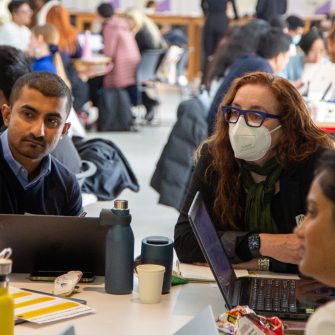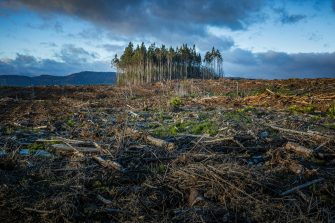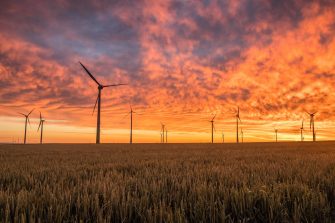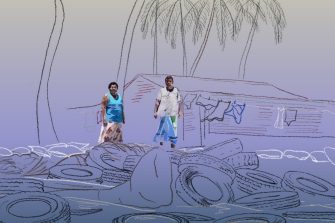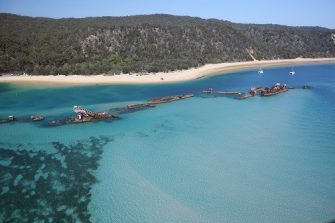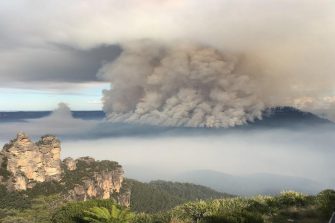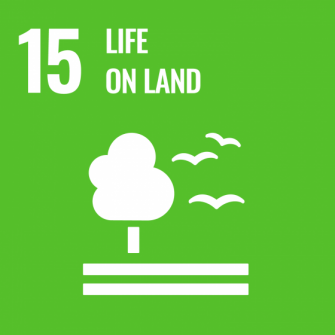SDG 13: Climate Action
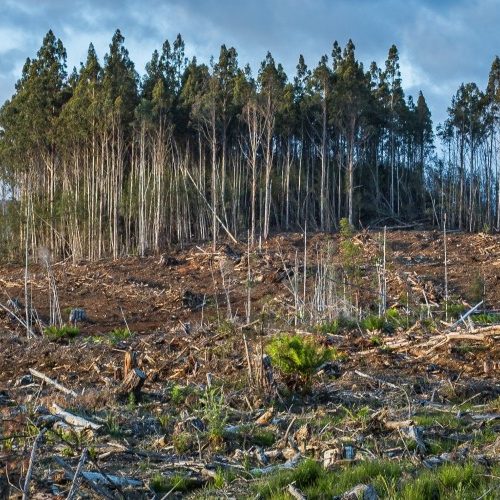

=3rd
In the 2025 Times Higher Education Impact Rankings.


Our work
SMaRT@UNSW
SMaRT@UNSW, in partnership with the University of Newcastle, was awarded $50 million under the Australian Government’s Trailblazer Universities Program for Recycling and Clean Energy (TRaCE) in 2022. It is working to commercialise projects that will help Australia and the world transition to sustainable recycling and clean energy solutions and systems.
Centres, institutes and partnerships
UNSW hosts Circular Economy 2030 forum
UNSW hosted the Circular Economy 2030 forum, a collaboration between Circular Australia, Impact X and UNSW Sydney and is supported by the International Universities Climate Alliance, UNSW Engineering and UNSW’s Institute for Global Development.
UNSW Vice Chancellor and President Professor Attila Brungs was a keynote speaker at the event, reflecting UNSW’s position as a global knowledge partner and leader in climate science, technological innovation, sustainable industrial practices, and development.
Partnerships for Climate Action Symposium
International Universities Climate Alliance (IUCA), Monash University, and UNSW Sydney, in collaboration with regional partners, presented this special event.
Prominent leaders and experts in the tertiary sector, government, the United Nations Framework Convention on Climate Change (UNFCCC), local communities, youth and First Nations people shared their experiences in fostering mutually beneficial, authentic and sustainable partnerships that promote climate empowerment throughout the Asia-Pacific region.
Water report at COP 29
This 2024 UN-Water report on the water dependencies of various climate mitigation measures launched at COP 29, and draws on work and calculations developed by the International University Climate Alliance, of which UNSW is a member.
UNSW joins the UN's Race to Zero
In 2021 UNSW became a signatory to the United Nation’s Race to Zero global campaign, which rallies leadership and support from businesses, cities, regions, investors for a healthy, resilient, zero carbon recovery. Joining the campaign reaffirmed our commitment to combating climate change and building a sustainable future.
Advancing Opportunities in Climate Risk & Response
The Institute for Climate Risk and Response (ICRR) highlighted innovative, cross-disciplinary research driving new responses to climate risk at the UNSW SDG Showcase 2025. From advancing accountability in fossil fuel exports to stress testing in finance and exploring climate-health connections, the panel shared how their work is shaping impactful pathways for a more resilient future.
How will climate migration reshape our world?
The UNSW Centre for Ideas hosted award-winning science writer Gaia Vince for this keynote talk, followed by a conversation about how climate migration will reshape our world with Jane McAdam, Director of the UNSW Kaldor Centre and Guardian Australia’s immigration reporter Ben Doherty.
What are the economic implications of a changing climate?
The lecture presented by Dr Timothy Neal explores the potential channels through which climate change will impact our economy, and the unrealistic assumptions that underlie current models used to predict the economic impact of a changing climate.
UNSW Environmental Sustainability
Environmental sustainability is a key element of UNSW’s operational contribution to Societal Impact. We have made it our mission to become the first university in Australia to commit to having 100% of its electricity supplied by photovoltaic solar power. Our students and staff are actively engaged in environmental and social issues. We recognise that we are uniquely positioned to contribute to solving global environmental challenges through teaching, research, thought leadership and demonstrating leading practices on our campuses.
Zero Emissions
We’ve achieved our target of net zero in scope 1 and 2 emissions every year since 2020.
Our next goal is net zero for all emissions scopes by 2050.
Net Zero by 2050
UNSW met our 2025 target of a 30% reduction in total emissions (scope 1, 2 & 3) and is on track to meet our aim of net zero emissions by 2050.
100% Solar Energy
All UNSW electricity is from renewable sources under a world first 15-year solar Power Purchase Agreement (PPA). Complemented by an accelerated Electrification Program which completed designs for electrification upgrades in 10 buildings and commenced designs for a further 11 buildings in 2023.
Assurance
Third-party assurance of UNSW greenhouse gas emissions was completed for the first time, for 2023 emissions reporting.
Electrification upgrades
UNSW’s Electrification Program is a major initiative driving the University’s goal to reach net zero emissions by 2050. The program is phasing out gas-powered systems across campuses and replacing them with clean, all-electric alternatives powered by renewable electricity.
Our Electrification Strategy aims to sustainably eliminate the University’s direct (Scope 1) greenhouse gas emissions through a phased approach built on three key pillars. Stage 1 is now complete.

